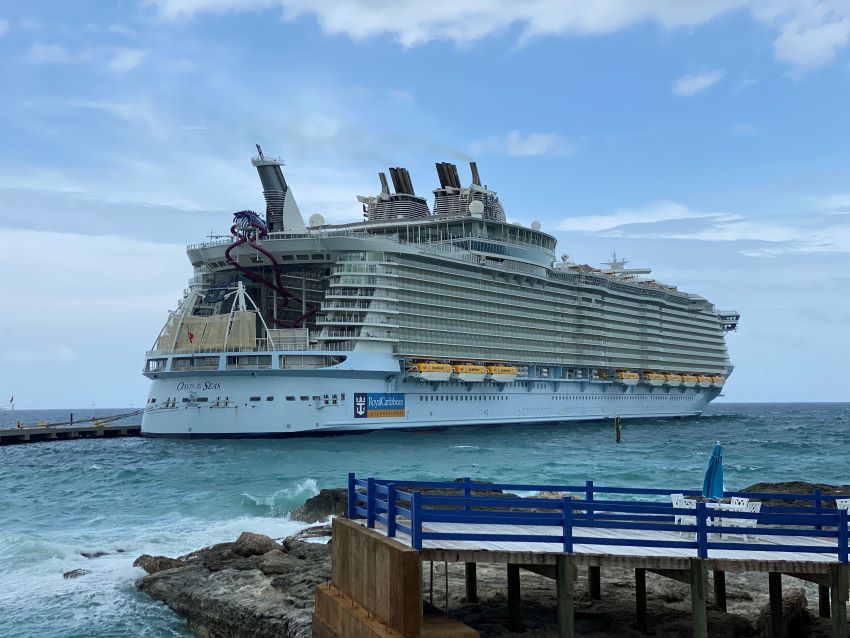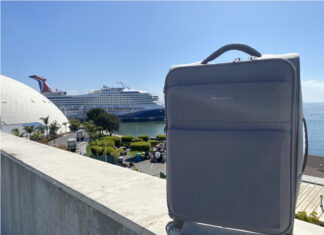For years cruise lines have been in a battle with each other — and the remoteness of sailing the open ocean — to bring their passengers the fastest Internet service.

While a decade ago wi-fi access might have been seen as a luxury, these days it’s a necessity. From just staying in touch back home with video calls, to working remotely, to streaming video and music, the reasons for needing Internet access — and good bandwidth — are only growing.
But there’s a major challenge in providing access when a ship travels from country to country, often hundreds of miles from the nearest shore while also dealing with weather and literally thousands of passengers trying to stay connected at once. On good days, Internet access can be in the 3-5 Mbps range. That’s enough for basic tasks, but usually nowhere near what people expect when on land.
Now, Royal Caribbean may be the first cruise line to put an end to that. The cruise line announced that it will use SpaceX’s Starlink service to provide Internet to its ships.
You might have heard of Starlink before. The service from Elon Musk’s SpaceX provides satellite Internet, specializing in hard-to-reach rural areas. It uses thousands of satellites in low-Earth orbit to provide a much faster service than traditional satellite Internet service.
In recent tests by Ookla, Starlink provided service in the U.S. averaging around 90 Mbps in download speed — or about 20-30 times faster than the traditional service seen on cruise ships. That’s more than enough to stream, hold video calls, and anything else you might need to do online.
Now, there’s no word on exactly what sort of speeds cruise passengers can expect on Royal Caribbean ships. However, following a trial aboard Freedom of the Seas, the cruise line says that it “received tremendous positive feedback from guests and crew.”
Royal Caribbean plans to roll out Starlink across the entire fleet by the end of the first quarter of 2023.
“This technology will provide game-changing internet connectivity onboard our ships, enhancing the cruise experience for guests and crew alike,” said Jason Liberty, CEO of Royal Caribbean Group. “It will improve and enable more high-bandwidth activities like video streaming as well as activities like video calls.”
Perhaps most exciting for cruise passengers is that should Starlink provide the sort of speed and reliability that’s expected, then it likely won’t be just limited to just Royal Caribbean’s fleet as others try to catch up.
It may be that in a relatively short time the Internet provided on cruise ships is just as good as what you see on dry land, no matter which cruise line you sail.












